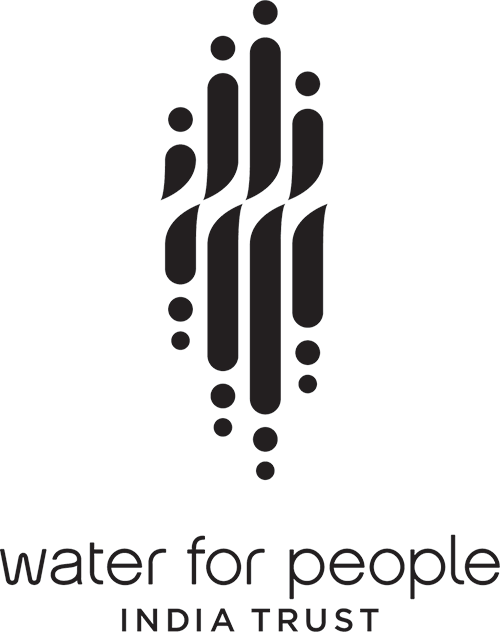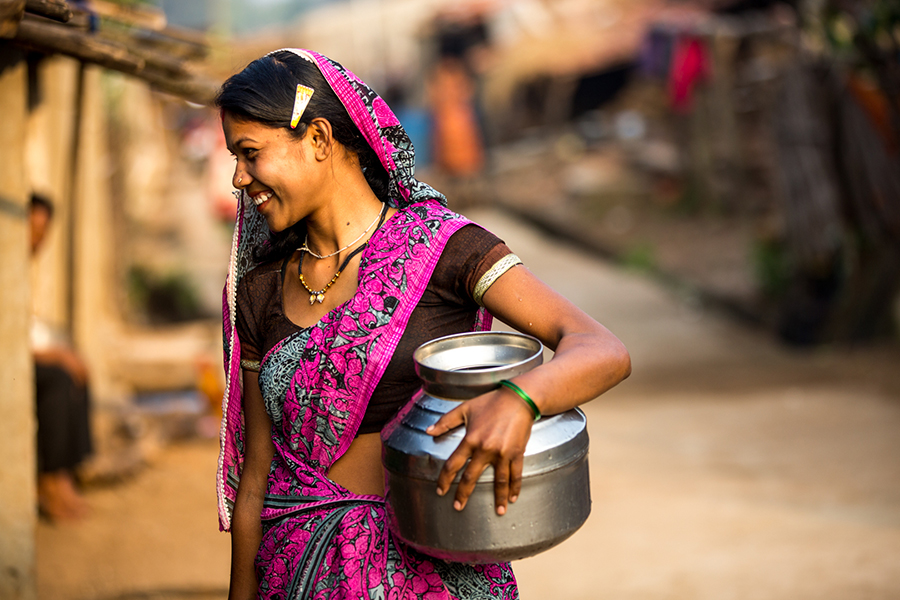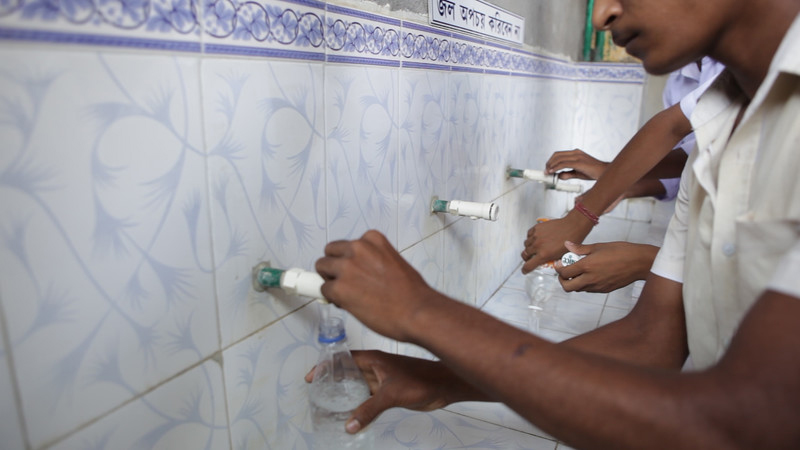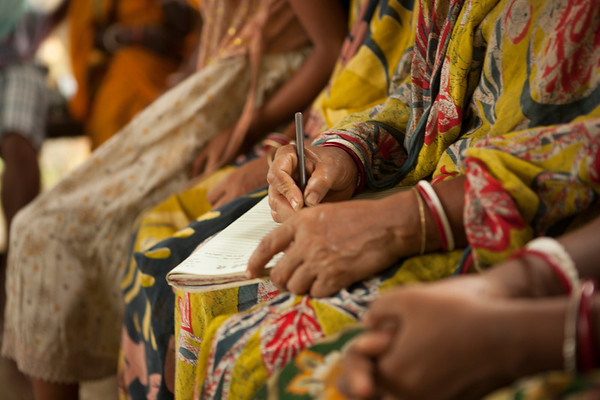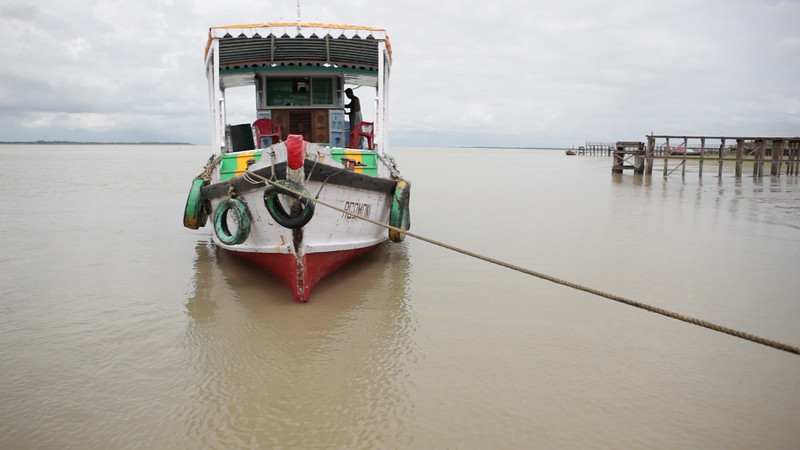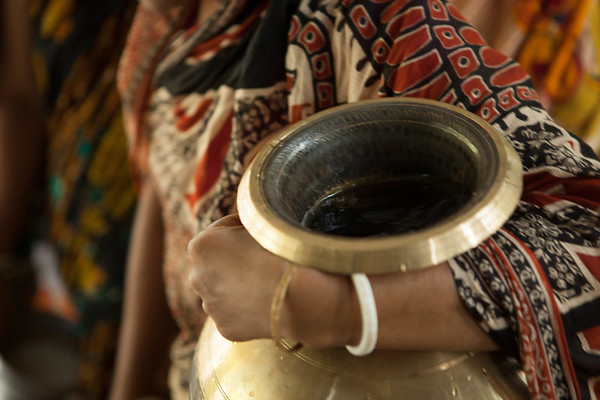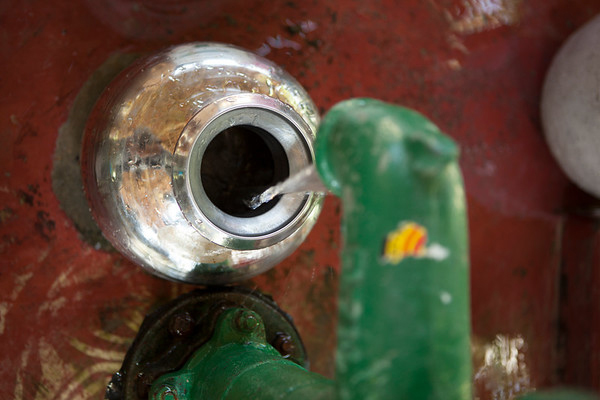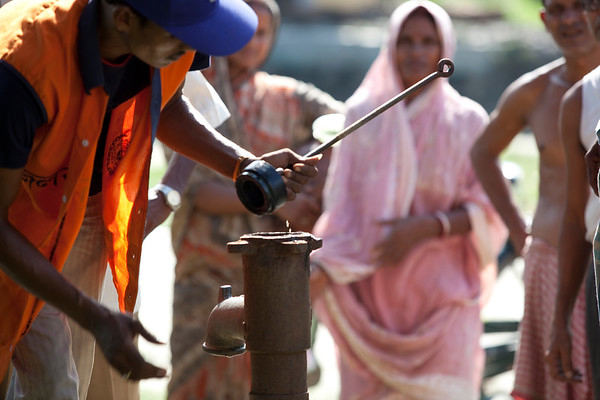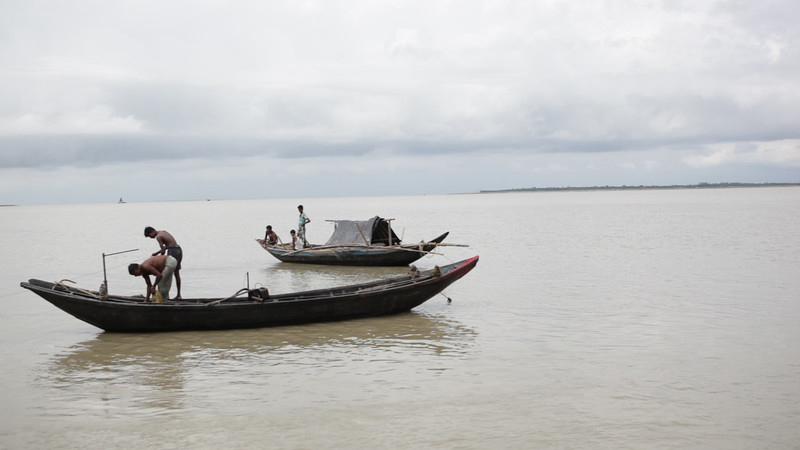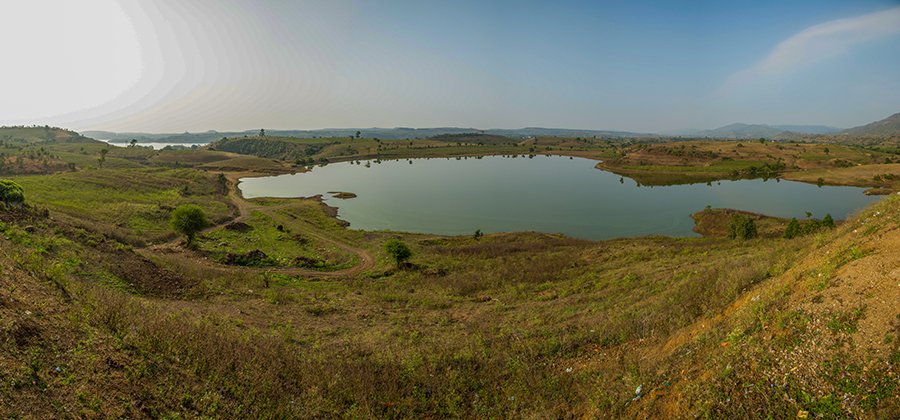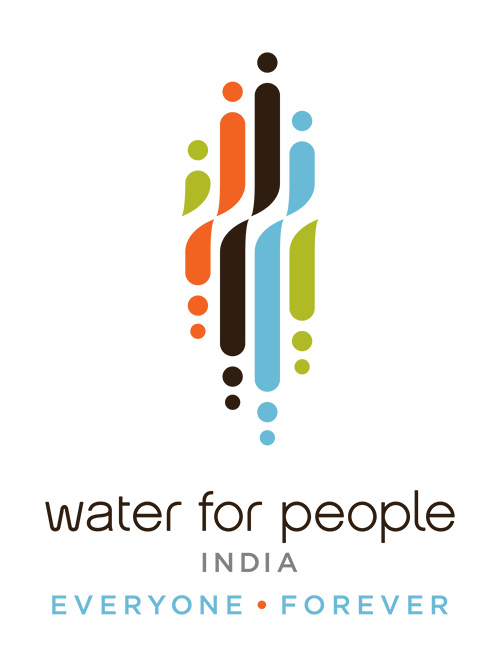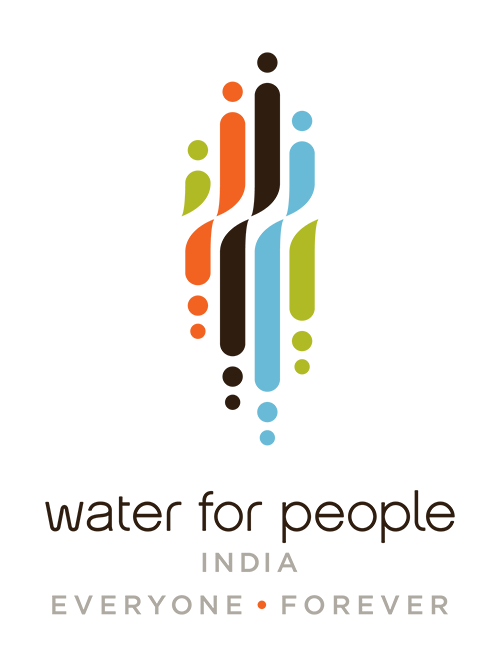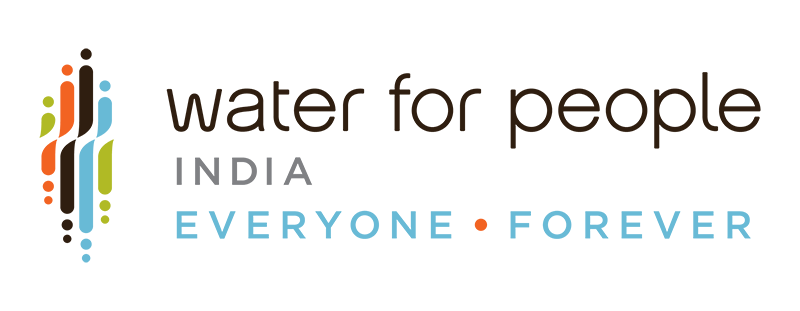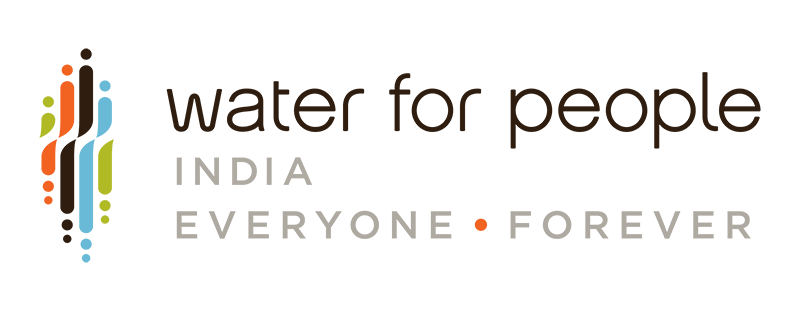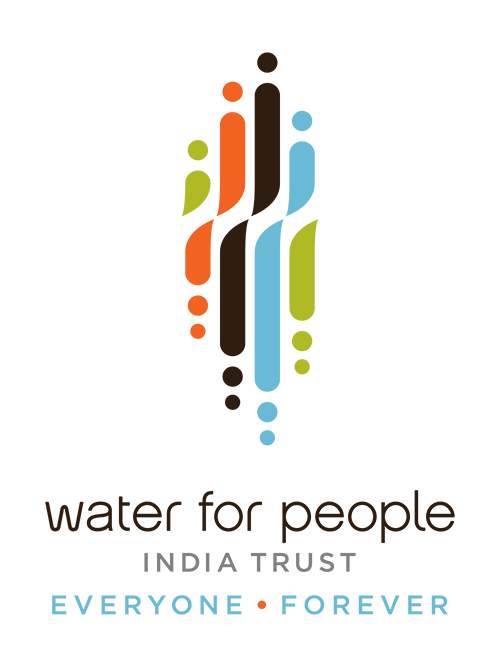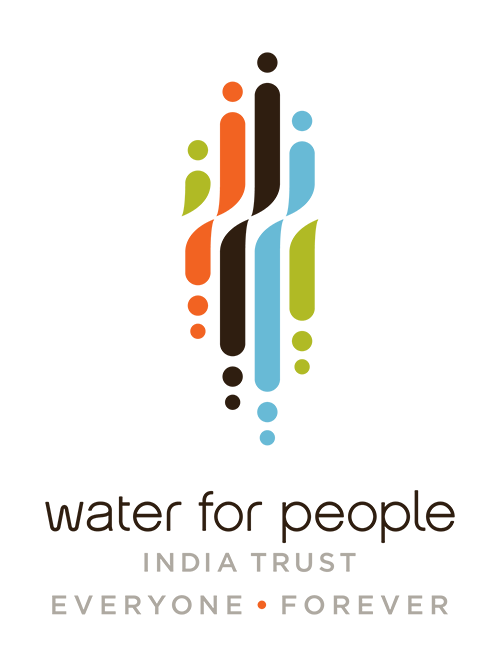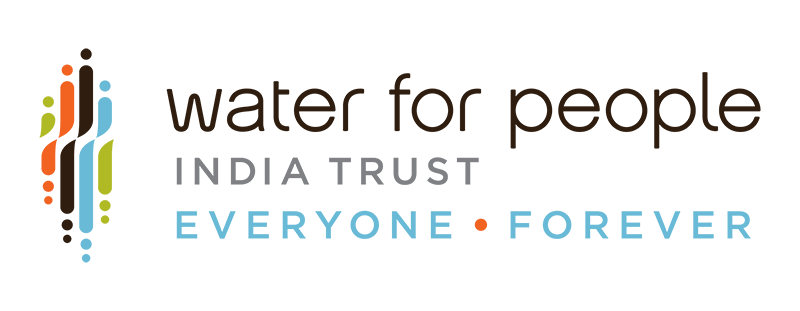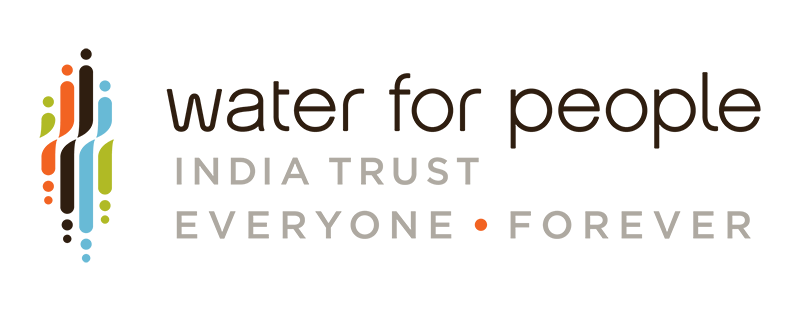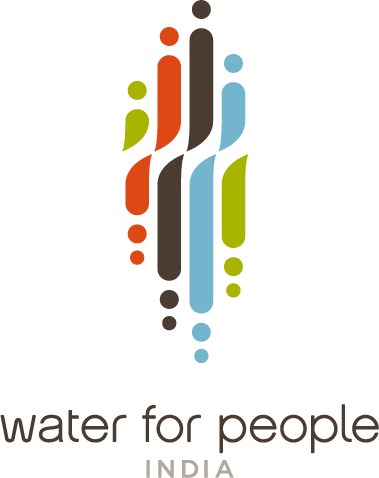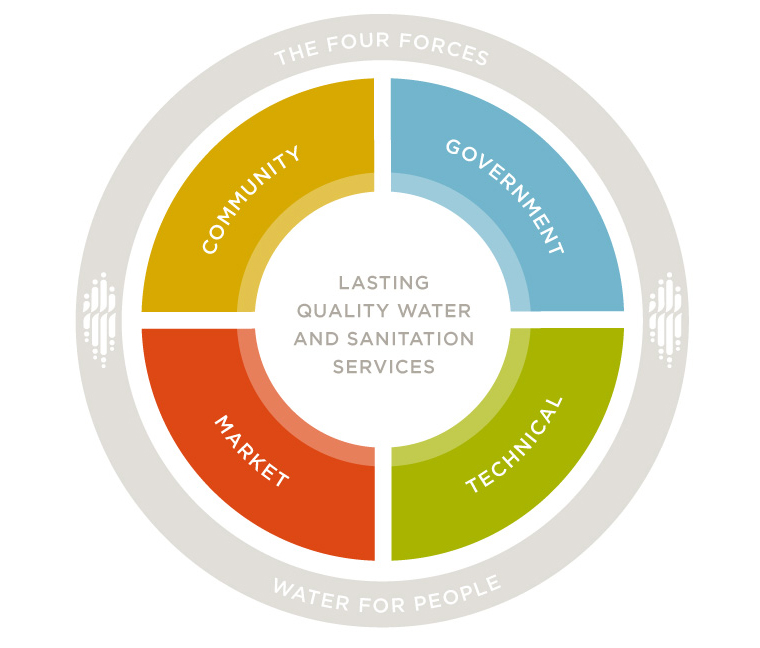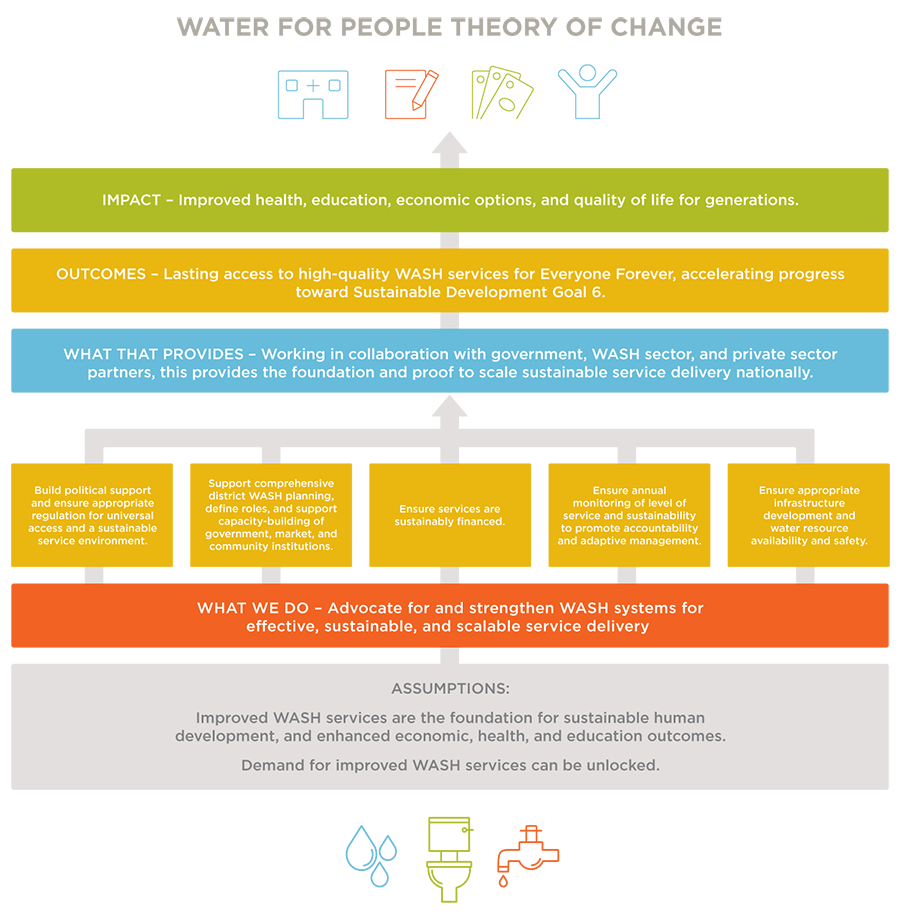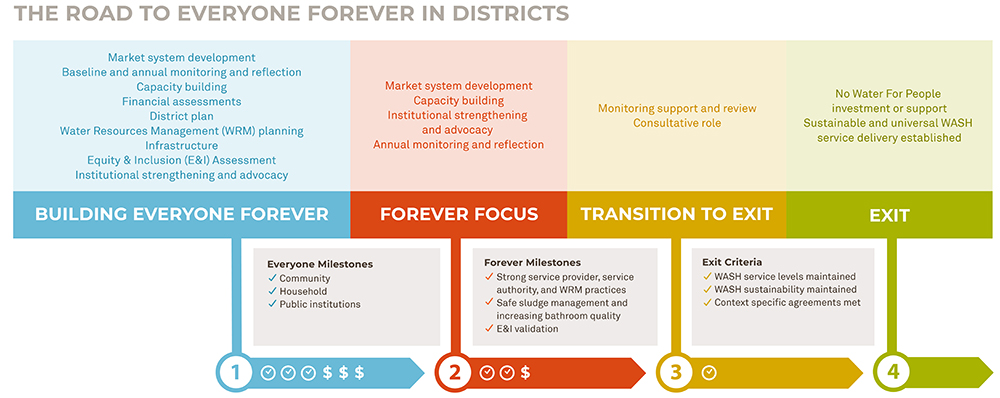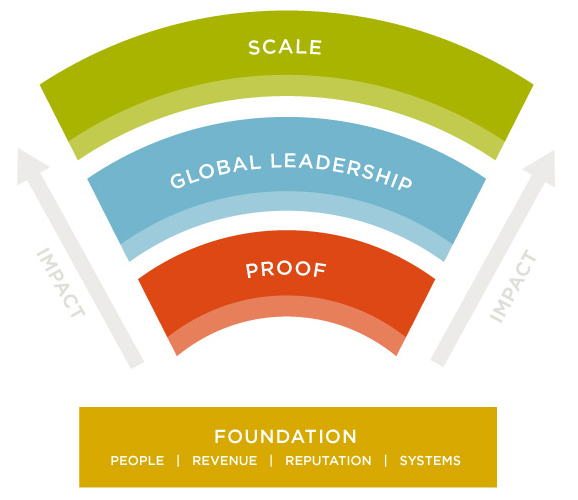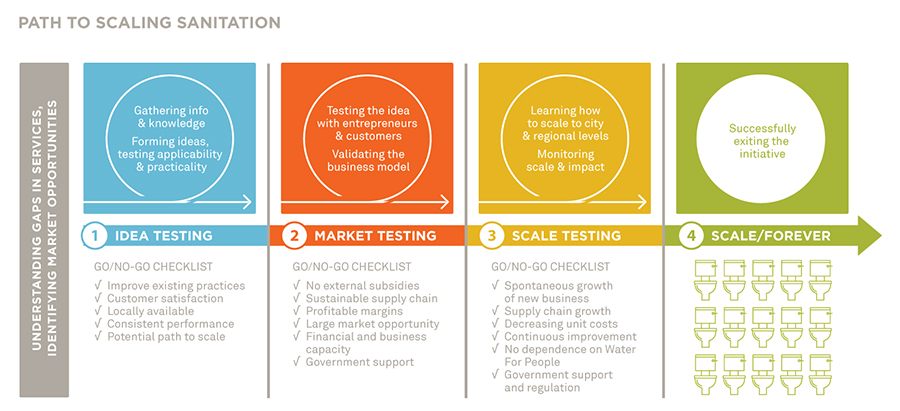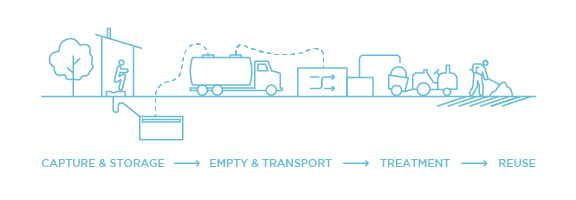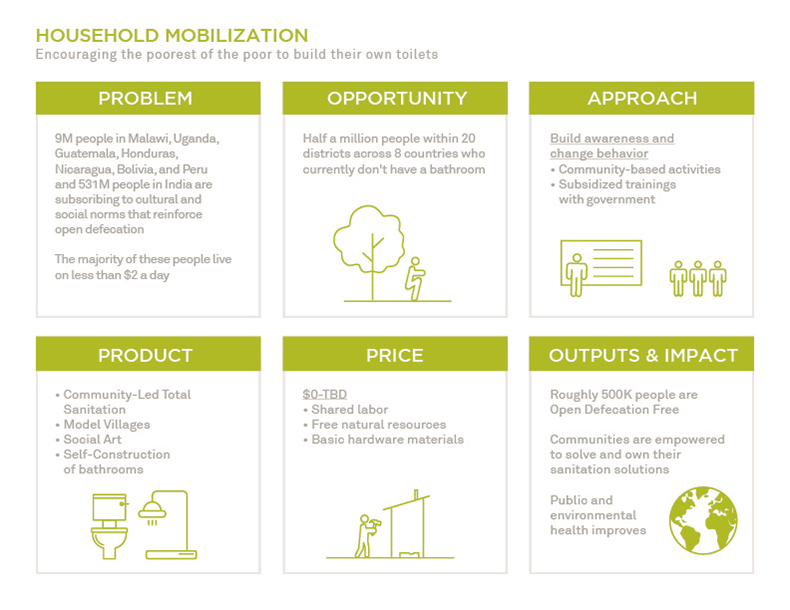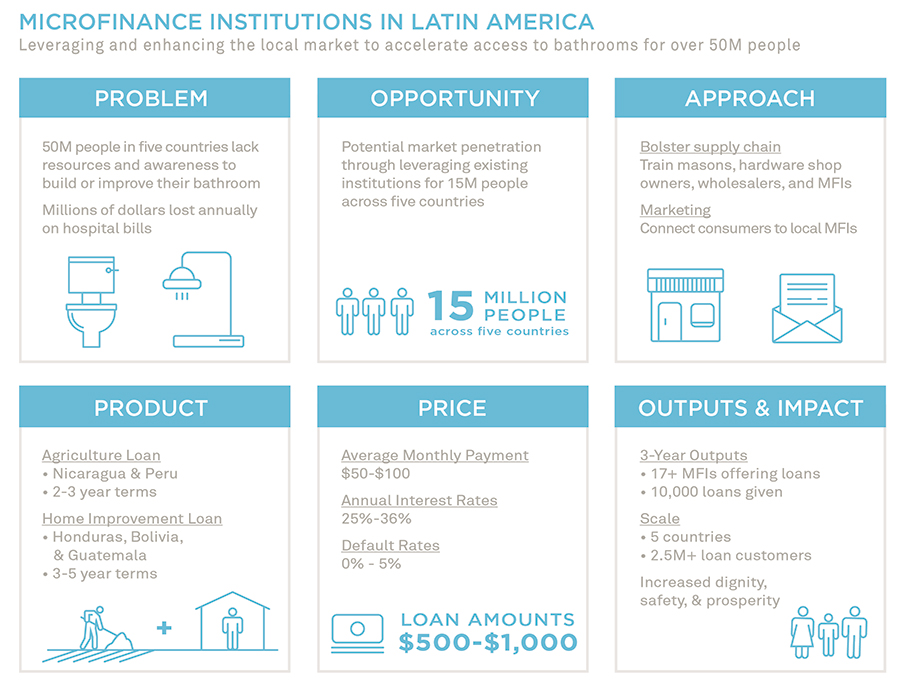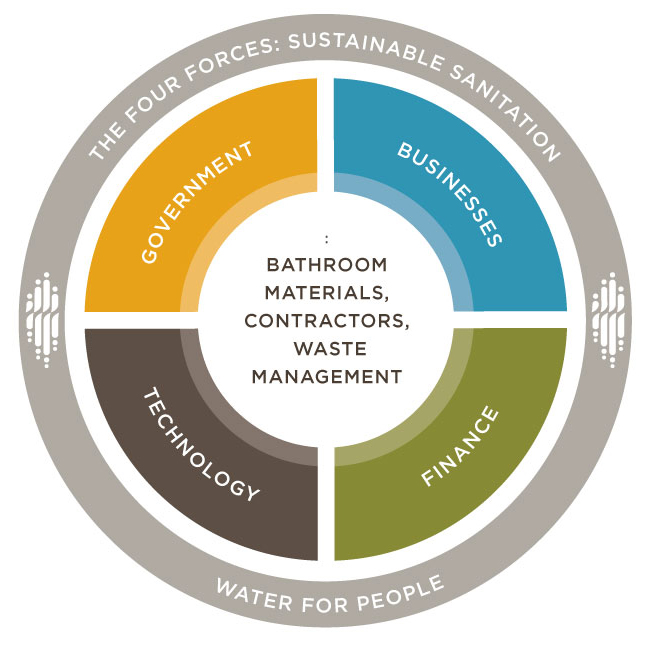Water For People India exists to promote the development of high-quality drinking water and sanitation services, accessible to all, and sustained by strong communities, businesses, and governments.
Everyone Forever means water and sanitation that lasts – for every family, clinic, and school. It sounds simple, but it’s actually a big shift in the status quo. In most water and sanitation work, the focus is on short-term wins – building a few wells or toilets without considering how they will keep serving people long into the future. So, in 2011 we conceptualized the Everyone Forever model. It means what it says – everyone has water that lasts forever.
Everyone means every family, clinic, and school in a district has water and sanitation services.
Forever means water and sanitation services are sustainable and local districts and communities can maintain them for generations to come.
Water For People presently works in nine countries around the world: Guatemala, Honduras, Nicaragua, Bolivia, Peru, Malawi, Rwanda, Uganda, and India.
Based on special grants and funding, we have worked in more than 40 other countries since we were founded but have found that a targeted approach is more effective and efficient. We have utilized this targeted approach since 2011.
Water For People began working in India in 1996, with a small project in West Bengal to help eliminate naturally occurring arsenic in water supplies. In 2007, Water For People established a country program with an office in Kolkata, West Bengal. In 2008 we started a locally registered arm, called Water For People India Trust, to work in tandem on projects funded by Indian corporations, foundations, and individuals. Presently, we are active in four states – West Bengal, Maharashtra, Bihar, Odisha.
Water For People began working in India in 1996, with a small project in West Bengal to help eliminate naturally occurring arsenic in water supplies. and in 2008 we developed a locally registered arm to work in tandem on projects funded by Indian corporations, foundations, and individuals. To date, Water For People India has worked in 27 districts within six states and reached over one million people through water and sanitation initiatives.
To date, we have reached over one million people in India through water and sanitation solutions.
To promote the development of high-quality drinking water and sanitation services, accessible to all, and sustained by strong communities, businesses and governments.
Presently, we are active in four states – West Bengal, Maharashtra, Bihar, Odisha
Everyone Forever Regions
- Sagar Block, South 24 Parganas District, West Bengal
- Patharpratima Block, South 24 Parganas District, West Bengal
- Namkhana Block, South 24 Parganas District, West Bengal
- Rajnagar Block, Birbhum District, West Bengal
- Sheohar District, Bihar
- Chikhaldara Block, Amravati District, Maharashtra
Other Areas
Khoyrasol Block, Birbhum District, West Bengal
Nalanda district, Bihar
Achalpur and Chandur bazar blocks, Amravati District, Maharashtra
Ganjam District, Odisha
Khordha District, Odisha
Safe water doesn’t just mean people gain hours back for themselves and their families. It means people live longer, healthier lives. Parents are more likely to see their children grow up. The economy expands. Political unrest decreases. Families can keep their kids in school. There’s more time for work, rest, and play. A toilet isn’t just a nice luxury. It’s a necessity for a dignified, healthy, and safe life. That’s why we’re doing everything we can to build a global movement to bring water and sanitation services to Everyone Forever.
Water For People India performs a special data collection and analysis of any new areas where we are considering working. When new areas are considered, the first factor we need to see is a clear need for improved water supply and/or sanitation. We also consider community motivation, costs, the availability of a trustworthy NGO partner, the support of local government, and a safe environment. To ensure system sustainability, Water For People India requires a commitment from the communities that will benefit from improved water services. The goal is to bring 100% coverage in water and sanitation within each district and then replicate this model in new districts.
We have formulated our Everyone Forever model in alignment to SDG 6 “Clean Water and Reliable Sanitation For All”. Our top priority is to validate the model’s approach of targeting water and sanitation initiatives at district-level supported by strong monitoring and evaluation.
Marginalized and tribal populations are our direct beneficiaries. Local institutions including Panchayati Raj Institutions, its sub-committees and community-based organisations are the focus to achieve sustainable WASH systems. Engagement with the local governments and private players is the key to ensure safe water and sanitation service levels are sustained and scalable.
Water For People India has positively impacted more than 1.2 million lives through initiatives in community drinking water and sanitation, WASH in public institutions, and market-led approaches to sanitation. During 2008-2018, our programs have positively impacted over 150 Gram Panchayats and peri-urban areas, building on collaborations with communities, local governments and private players.
Yes, we do provide internships. For more details, please fill our Become A Proud Volunteer section https://waterforpeopleindia.org/become-a-proud-vounteer/
Niti Aayog has modelled the national performance indicators on the 17 SDGs, 169 targets and 306 national indicators. Water For People India has adopted a similar approach to measure the impact and sustainability achieved by the Everyone Forever model in West Bengal (South 24 Parganas, Birbhum), Bihar (Sheohar), and Maharashtra (Amravati). Our indicators evaluate the development impact and compute a pathway towards achieving long-term sustainability. The metrics measure service levels related to water points and sanitation facilities at the household and public institution levels.
Under Project Sheohar, the “Reform- Perform-Transform” initiative is being piloted in all the five blocks – Sheohar, Dumri Katsari, Piprahi, Purnahiya and Tariyani of Sheohar district, Bihar. Our livelihood intervention is aligned with SDG 6 principles of water-use efficiency and a synergistic approach to Everyone Forever and One Drop Foundation’s ABC (Access, Behaviour, Capital) components. We help poor farmers obtain cost-effective and locally appropriate tools to optimize water use and crop yield. This increases the average household income, which in turn improves the quality of life with access to toilets and better WASH facilities. To further modernise the farming community, Water For People India applies innovative approaches to Solid waste management (Coordinated Compost Pit, Vermicomposting), Enterprise development (Farmer Producer Organisations) and water-efficient technologies (Rain Gun, Sprinklers). The purpose of this need-based initiative is to ensure stability in agricultural produce and enhance the productivity for WASH intervention in each block.
Women and water are inseparable. In most developing countries, water is “women’s business.” Our programs aim to engage women from local communities to the maximum extent possible. Women and girls have been encouraged to be a part of WATSAN Committees in communities and schools for their proper representation and developing them as future community leaders. Studies have demonstrated that women are early adopters and apostles for WATSAN services, if properly trained and supported and Water For People India’s approach bears this out. Ensuring that women are part of water user committees for the operations and maintenance of water points and community sanitary facilities adheres to this strategy in all WATSAN Committees formed in communities or schools. Thus, involving both women and men in integrated water resource initiatives leads to better sustainability, governance and efficiency.


